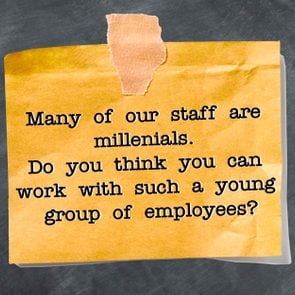9 Things You Should Do If You’ve Just Been Laid Off
Updated: Aug. 30, 2023

Losing your job is stressful, but this list of actionable tips will help orient you toward the future
Layoff season has arrived, and tech companies are slashing staff with more layoffs to come. Some companies are cutting thousands of jobs, and many workers wonder who is next. If you’ve just been laid off or think you’re in danger of being laid off, the first thing you need to do is stay calm—because panicking won’t change anything—and think about the actionable steps you need to take.
Danny Groner, now Director of Growth PR at Forecast Labs, was laid off from his job in 2019 when the company he worked for let go of a third of their staff overnight. But as someone who’d entered the workforce only a few years before the Great Recession, he’d gotten the message to live below his means and plan ahead. Still, Groner was rattled.
Layoffs are hard to digest emotionally, especially if you identify as a hard worker, but in many cases, it’s not about you. “Folks who are fired or laid off tend to globalize the event,” says Dr. Sabrina Romanoff, clinical psychologist, professor, and writer in New York City, “Find a way to emotionally detach at the moment.”
What to do after being laid off
If you’ve recently been laid off, hopefully, you can make the most out of losing your job, perhaps finding a role that’s an even better fit. Below is our list of things to consider both to protect yourself and to plot your next steps. If you haven’t been laid off but work in an industry where layoffs are more likely than not, this is a good list to get started on now so you can get ahead before you risk falling behind. If you think your job is secure, think again. It’s never too soon to spruce up your resume with some resume power words should you find yourself looking for work.
Take a minute

Your world has been turned upside down, so take a minute to breathe and relax. Betsy Hutchins is a financial planner at Forward Financial Planning in Tennessee who recently had two of her clients laid off. “The first thing I told both of them was to take a deep breath and have a positive outlook; this is a step forward to your next opportunity,” Hutchins says. “I also advised them to consider any changes they wanted to make in their life at this stage.” Think about if you want to shift industries, go part-time, make a move to remote work or even start your own business.
Share the news—but carefully
“For a long time being laid off was something people didn’t advertise, but that stigma has shifted,” explains Blair Heitmann, LinkedIn Career Expert. “How you share your job status news is up to you, but leveraging your professional network in moments like this is incredibly valuable—it can be an opportunity to open the door to connections and conversations with your current network, as well as with new contacts, who might be able to offer advice, support or even introductions that can help you get hired after a layoff.”
However, resist the urge to share all your emotions about this experience on social media; new employers are looking, and you don’t want to appear disgruntled. “Take a day, ideally three, to process on your own before pulling your social media posse into your sadness, rage, frustration, or vitriol,” advises Nora Burns, HR & Workplace Culture Expert at The Leadership Experts, “You will move to the next step faster than they will.”
Look at your expenses
Hopefully, you have an emergency fund to support you when your severance runs out and supplement unemployment if that kicks in before you secure your next job. Much of the advice around managing finances after a layoff is just common sense, but when stressed, it can be hard to remember what’s practical.
Here’s what Burns did with her laid-off clients: “We looked at current monthly expenses and discussed if they needed to temporarily eliminate any recurring expenses. Next, I had them apply for unemployment.” Unemployment doesn’t start immediately, so it’s best not to wait until the last minute. You should also make a budget and consider these budgeting apps so you can avoid accidentally going overboard when it would be precarious to do so.
Look at health insurance
You’ll need to figure out health insurance for yourself and your family, if you have one, especially if your job provided insurance for the family. In some cases, COBRA makes sense, but in others, it makes sense to consider other options. Lively is the fastest-growing health savings account (HSA) provider, and Shobin Uralil, their COO, has suggestions on what Americans should do if they find themselves recently unemployed and no longer receiving healthcare coverage through their employer:
- Use HealthCare.gov: The Affordable Care Act was written and passed to help individuals buy their own healthcare. You can go to HealthCare.gov, type in your state and a few other details, and see what plans are available to you.
- Choose the right type of coverage: A high-deductible health plan (HDHP), paired with a health savings account, could be the best coverage for the health of your family and your wallet, especially because together, they offer a triple tax advantage.
- Use HSAs: For individuals already enrolled in HDHPs, take advantage of an HSA to put more savings in your pocket for health-related expenses.
Update your resume
Even if you were only in your last position for a short time, you’re still going to need to update your resume if you’re considering a new direction. “Reverse engineer your career path from your ideal job’s description and see what you have and what needs upskilling,” suggests Matthew Warzel, President of MJW Careers, LLC, a resume-writing firm. “Think the long game and have a vision of your dream job,” Warzel says. “Think of your job drivers. What’s important to you? What motivates you? What’s your passion? What can you do that will make you happy in two weeks, three months or a year?” If you were career cushioning, did you develop any skills outside your previous job description that you’re interested in pursuing?
Practice interviewing

If you last interviewed a while ago, brushing up on those skills is a good idea. Some people suggest applying for jobs you’re not sure you want to get practice interviewing, but that can be a waste of everyone’s time. Instead, book time with someone like Anna Papalia, founder and CEO of ShiftProfile, who specializes in teaching clients how to interview. This is a good investment for your future!
Network
“The best time to be networking is when you don’t need to,” Groner says, “You can make a better impression when you need work.” That said, it’s never too late to network, which you can do the old-fashioned way or on LinkedIn.
Heitmann recommends freshening up your LinkedIn profile, which may look like updating your photo and your skills. “You should also highlight soft skills—like creativity and communication—as a great way to attract recruiters and help them understand more about you as a person,” Heitmann says. You should also “Summarize your professional story and share what you’re looking for,” Heitmann suggests, “But keep it to about four to five sentence bullets.”
Turn on LinkedIn’s “Open to Work” feature, set up job alerts and tap your network. Groner suggests only cold contacting people on LinkedIn if you have at least one connection in common to help cut down on LinkedIn scams.
Stay focused
“One of the biggest stumbling blocks for job seekers is allowing themselves to be pulled in multiple directions depending on what jobs they see posted online in any given week,” says Kelly Donovan, principal of Kelly Donovan & Associates, a job search firm. “This leads to a scattered, unfocused job search that usually stagnates.” Some people like the convenience and streamlined approach of working with headhunters, but Groner recommends against it. “You might get pulled into a job that isn’t a great fit because the headhunter wants to make their commission or because you’re financially worried,” Groner says. Staying focused and waiting for the right job is good insurance against needing to job hunt again in the near future, which absolutely nobody wants.
Stay confident
This will look different for everyone. For some, that means continuing to bring some money in through the gig economy or freelancing, but for others, it may look like finding a hobby so that you don’t get anxious due to idle time. You can look into different programs and ideas you haven’t thought of, like returnship programs. You can also educate yourself by reading books such as the classic What Color is Your Parachute, which has been updated for 2022.
Sources:
- The New York Times, “When Your Layoff Has a Hashtag“
- The New York Times, “Amazon Is Said to Plan to Lay Off Thousands of Employees“
- The Wall Street Journal, “The 2008 Financial Crisis: How It All Began“
- Danny Groner, Director of Growth PR, at Forecast Labs
- Blair Heitmann, LinkedIn Career Expert
- Dr. Sabrina Romanoff, clinical psychologist, professor, and writer
- Betsy Hutchins, financial planner at Forward Financial Planning
- Nora Burns, HR & Workplace Culture Expert at The Leadership Experts
- Shobin Uralil, COO Lively
- Matthew Warzel, President of MJW Careers, LLC, a resume-writing firm
- Anna Papalia, founder and CEO of ShiftProfile
- Kelly Donovan, principal of Kelly Donovan & Associates



